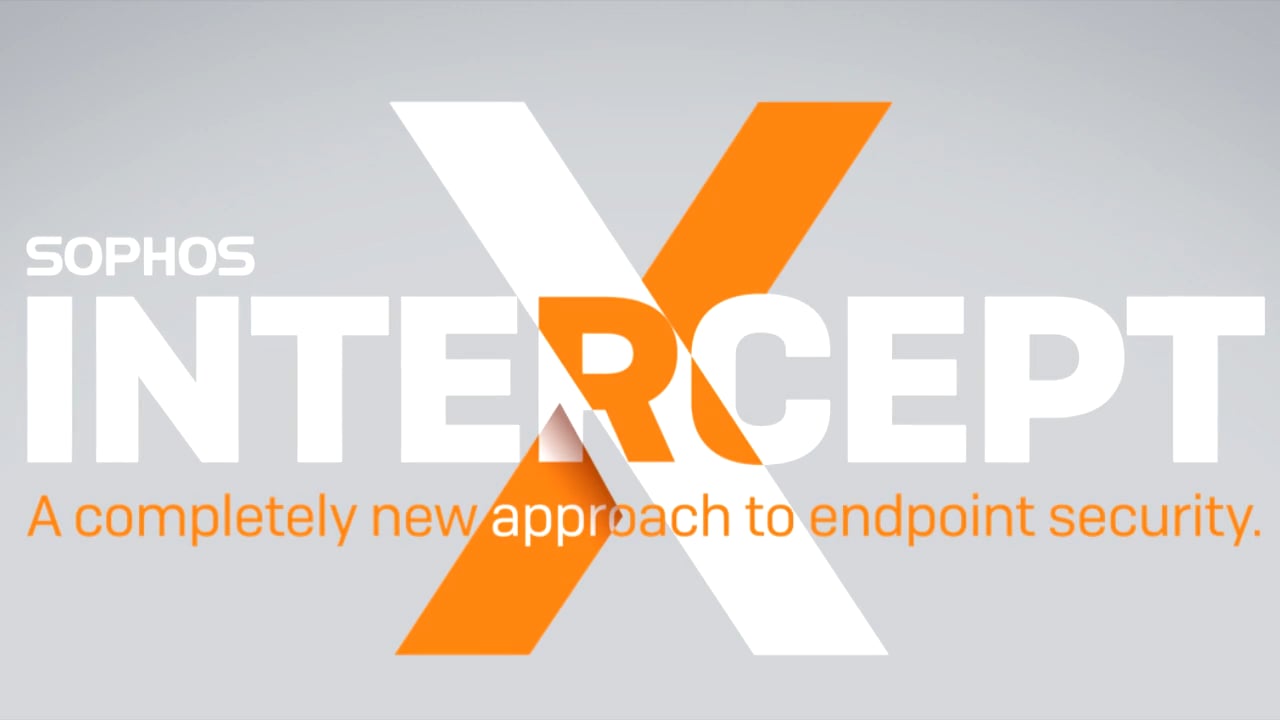Telecom
Sophos Adds Endpoint Detection and Response to Intercept X Advanced

Sophos, a global leader in network and endpoint security, on wednesday launched the latest addition to its endpoint solution portfolio, Intercept X with EDR.
Powered by Sophos’ deep learning neural network, which is trained on hundreds of millions of samples to look for suspicious attributes of malicious code to detect never-before-seen threats, Intercept X with EDR provides organizations with broad, expert analysis of potential attacks by comparing the DNA of suspicious files against the malware samples already categorized in SophosLabs to enable them to identify and respond to suspicious threats more quickly.
Until now, effective investigation and incident response has only been achievable in organizations with a dedicated Security Operations Center (SOC) or specialized IT security team trained to hunt and analyze cyberattacks.
With Sophos Intercept X Advanced with EDR, businesses of all sizes and those with limited resources can add threat tracking and SOC-like capabilities to their security defenses, reducing the time criminal hackers can hide in their network.
With a single click, IT managers have on-demand access to curated intelligence from SophosLabs, guided investigations into suspicious events, and recommended next steps.
To maintain full visibility into the threat landscape, SophosLabs tracks, deconstructs and analyzes 400,000 unique and previously unseen malware attacks each day in a constant search for attack novelty and cybercriminal innovation.
By providing access to SophosLabs data, IT managers of all skill levels have first-responder forensics at their fingertips to best determine if and what types of attacks are happening.
“’Am I under attack? Where is the attack taking place? How do I react?’ IT managers regularly face these time-sensitive questions, but without a SOC or trained security experts who know how to analyze potential threats, interrupting a cyberattack in real-time is very difficult,” said Dan Schiappa, senior vice president and general manager of products at Sophos.
“The sheer volume of malware, frequency of attacks and wide availability of toolkits on the dark web have made EDR capabilities necessary to every business – especially those with limited IT security resources. Sophos is providing the equivalent of a team of global cybersecurity experts and access to the rich knowledgebase SophosLabs has about the reputation of files and other information collected through terabytes of malware analysis. IT managers can now quickly analyze and trace attack pathways without needing to reverse engineer files.”
Once cybercriminals get a foot hold, they use multiple attack methods to escalate privileges and advance step-by-step. With Intercept X Advanced with EDR, IT managers can see if an attacker is moving laterally, and leverage the anti-ransomware and anti-exploit capabilities in Intercept X, the industry’s most sophisticated endpoint prevention solution. Sophos Intercept X with EDR is integrated with Sophos Central, a cloud-based unified console for managing Sophos’ portfolio of products, allowing end users and Managed Security Partners to make decisions based on EDR intelligence from a single pane of glass.
“EDR initially evolved as an enterprise discipline, typically requiring a team of skilled security analysts to use it to best advantage. Organizations looking to add EDR need to consider how they are going to integrate the technology into their overall security strategy, so triaging and remediating potential incidents is easier and more effective,” said Scott Crawford, information security research director, 451 Research.
“Sophos has focused on creating EDR tooling that is simple to use, affordable and integrated as part of its Intercept X endpoint product. This should give organizations added visibility for threat response. Together, these security components can provide businesses with more control over their own networks and help improve defenses against today’s cyberattacks.”
“In addition to technology, it is equally important for customers to have education as part of their overall security strategy. Our small to medium sized clients need tools that provide information about what threats happened, where and how they got in, and how to fix the problem, so the attacks don’t keep happening over and over again,” said Nick Beardsley, chief solutions architect, TeamLogic IT, a Sophos partner and managed security provider based in Woburn, Mass.
“There’s always a lot of leg work that goes into examining the root cause of an attack – our customers don’t have the time, budget or expertise to threat hunt, and they don’t always understand why they need to do it. Even if they do see the value, their budgets don’t let them come close to having an in-house threat intelligence team like SophosLabs or a dedicated SOC.
“The ability to access SophosLabs research through Intercept X Advanced with EDR, allows us to show our customers why anti-virus or a single security product alone is not enough and to better explain how the attacks are happening, so they don’t make the same mistakes ”.
Telecom
Keystone Bank Seeks to Join Suit in Tussle over 9Mobile Shares Ownership

Keystone Bank has brought a motion seeking to be joined as a party to the suit over the ownership and control of Emerging Markets Telecommunication Service (EMTS), which is the holder and operator of 9Mobile Telecommunication licence.

The messy turnaround came as a Federal High Court sitting in Abuja resumed hearing in the suit.
At the hearing, Keystone Bank, brought a motion seeking to be joined as a party to the suite, a proposed statement of defence and counter-claim which discloses triable issues and also demonstrates applicant’s interest in the subject of this suit.
The bank in its counter-claim is seeking among other reliefs that the resolution of the 5th defendant passed on December 7, 2023, increasing the share capital of the 6th defendant to counter-claim from N90, 000,000 to N2, 000,000,000 and reducing the 3rd defendant’s percentage stake/interest/shareholding in the 6th defendant to counter-claim to approximately 4.5 percent is null and void.
Abubakar Funtua, the plaintiff, had dragged General Theophilus Danjuma (retd) and his company LH Telecommunication Limited, as well as the other defendants to court over the ownership and control of EMTS trading under the name of 9Mobile.
The other Defendants are Seltrix Limited (sued as the 1st defendant), the Corporate Affairs Commission, CAC, Nigerian Communications Commission, NCC, Hayatu Hassan Hadeija, Teleology Nigerian Limited and one Mohammed Edewor, a Director in Teleology Nigeria Limited.
At the resumed hearing in the case, parties were confronted with a motion by Keystone Bank seeking to be joined as a party to the suit with a statement of defence, counter-claim and allegation of fraud against some parties in the suit No. /ABJ/CS/1971/2024.
The motion states among other things that: “The applicant, Keystone Bank, also intends to present a counter-claim and has prepared a proposed statement of defence and counter-claim which discloses triable and fecund issues and also demonstrates applicant’s interest in the subject of this suit.
“The case of the applicant, is that the resolution passed by the 3rd defendant on May 9, 2023, approving the change of control/ownership of the 5th defendant from the 3rd defendant to the 8th defendant, in violation of the facilities agreements (Deed of Share charge) between the applicant and 3rd defendant, and the orders of the court made on February 20, 2023, in suit No. FHC/L/CS/297/2023 is illegal, null and void.
“The case of the applicant, as set out in the proposed statement of defence and counter-claim, is that the resolution passed by the 3rd defendant on May 9, 2023, approving the change of control/ownership of the 5th defendant from the 3rd defendant to the 8th defendant, in violation of the facilities agreements (Deed of Share charge) between the applicant and 3rd defendant, and the orders of the court made on February 20, 2023, in suit No. FHC/L/CS/297/2023 is illegal, null and void.
“The applicant also asserts in the proposed statement of defence and counter-claim that the resolution of the 5th defendant passed on December 7, 2023, increasing the share capital of the 6th defendant to counterclaim from N90,000,000 to N2,000,000,000 and reducing the 3rd defendant’s percentage stake/interest/shareholding in the 6th defendant to counterclaim to approximately 4.5 perceent is null and void.
“The applicant intends to seek the following reliefs, endorsed on the proposed statement of defence and counter-claim, at the hearing of the case: “A declaration that the 1st defendant to counterclaim is not a shareholder, either directly or indirectly, of the 6th defendant to counterclaim.
Telecom
MTN Nigeria’s Go MAD Campaign Inspires Innovation and Resilience in Aba

MTN Nigeria’s Go Make A Difference (Go MAD) campaign brought its message of innovation and empowerment to Aba, the renowned hub of enterprise, on Sunday, March 23, 2025.

L-R: Joseph Ogbuka, Manager, Go-To-Market, MTN Nigeria; Micheal Chinedum Ogbonna, CEO, Mua Couture; Dr. Precious Uche, CEO, Tonatel Beauty & Spa and MacDaniels Enwemuche, Regional Manager, Sales & Trade Development, MTN Nigeria at the Go MAD regional activation at Sugarland, Luxury City Hotels, Aba on Sunday March 23, 2025.
The event, held at Sugarland, Luxury City Hotel, celebrated local creativity and resilience while encouraging Nigerians to take bold steps toward transforming their communities.
Onyinye Ikenna-Emeka, Chief Marketing Officer of MTN Nigeria had earlier the inspiration behind the Go M.A.D initiative. “The Go M.A.D. campaign is rooted in the belief that MTN data gives you the power to take on the world, to achieve the extraordinary, and to make a meaningful difference, in your community, your family, and your workplace.”
The campaign has already made stops in cities like Abuja, Enugu, Calabar, Ibadan, and Benin, showcasing changemakers who embody the spirit of progress. In his opening remarks, MacDaniels Enwemuche, Regional Manager, Sales & Trade Development at MTN Nigeria, emphasised the importance of resilience during challenging times. He stated: “MTN is here to remind us that every great achievement starts small. We’re providing a platform for Nigerians to showcase their skills and products, not just locally but globally, removing limitations and amplifying their impact.”
Describing Aba as Nigeria’s “Silicon Valley”, Enwemuche explained the need to activate this campaign in Aba, due to the city’s industrious spirit and alignment with the Go MAD philosophy: “Aba is already making a difference. Every person — doctor, teacher, shoemaker — has a role to play in our ecosystem. Do it well.”
The event featured inspiring stories from local changemakers. Like chessmaster Tunde Onakoya, the campaign’s ambassador, these stories reflected how small steps can lead to global impact. Onakoya rose from humble beginnings to become a Guinness World Record holder for the longest chess marathon. His journey exemplifies the transformative power of determination and digital connectivity.
Local talents also took centre stage in a vibrant showcase. A body painter, tailor, and mechanical engineer demonstrated their crafts live, while fashion designer Prinna Nnanna unveiled an athleisure line sewn overnight and modelled on-site.
The Icons of Impact session highlighted changemakers using MTN data to drive social change. Dr. Precious Uche, CEO of Tonatel Beauty and Spa, shared her mission to redefine beauty standards:
“My business fights bleaching and promotes ‘black is beautiful.’ MTN data has helped me spread this message across Owerri and Aba.”
Fashion entrepreneur Michael Chinedu Ogbonna, CEO of Mua Couture, discussed how digital tools have expanded his reach: “The internet has made the world a global village. I now create clothes for clients in Malaysia, the US, and Canada — all thanks to data.”
Through storytelling, cultural showcases, and real-life examples, the Go MAD Aba activation reminded attendees that even small acts of courage can spark significant change. The campaign continues to celebrate resilience and innovation across Nigeria while empowering communities with digital tools.
With upcoming activations planned for cities like Jos, Lagos, and Kano, MTN remains committed to inspiring Nigerians to make a difference, one bold step at a time.
Telecom
Open Access Fabrics Set to Drive Connectivity to Achieve a Digital Economy

Ayotunde Coker, chief executive officer of OpenAccess Data Centre has described Open Access fabric, the company’s Africa-led interconnection platform as key driver of a digital economy, offering a range of virtual connectivity services from Open Access Data Centres (OADC) facilities.

Empowered by West Indian Ocean Cable Company (WIOCC), extensive digital backbone, OAfabric offers enterprises and service providers access to diverse digital ecosystems, supporting user-to-service, user-to-user and site-to-site connectivity.
Coker stated this during a tour of Open Access Data Centre facility in Lagos by some journalists recently.
According to him, “designed as a future-ready foundation, OAfabric unites cloud and local connectivity with OADC’s market-leading colocation solutions, establishing an innovative, scalable African infrastructure platform that addresses both local and global digital transformation demands.
“OA fabric offers a reliable, adaptable interconnection platform to support Africa’s growing digital needs and hybrid infrastructures for local and global providers
“Enabling secure, direct cloud connections, OA fabric supports data sovereignty and fosters local provider growth, OA fabric provides IX peering, virtual interconnection, and tailored IP services for Africa’s digital landscape.
“It’s not about a particular service provider, it’s about everybody. Once you have a network and you are able to route traffic, even if you are not live yet, and you are hoping to come in the future, we are waiting for you to come on board. So, that platform converges everybody.
“With Open Access fabric, everyone is expected to interconnect. You are collaborating with the government. You are collaborating with the banks. We are collaborating with all these guys to interconnect everyone, Microsoft, Google, all the cloud companies connect into it, because we already have the connectivity business”.
He noted that, “Through OA fabric, all the other connectivity providers have access to any content on OA fabric, so SMB, SMEs, MSMEs, who probably doesn’t have a registered business, but on social media, selling clothes and things like that, can have cost effective access to resources on the internet.
Speaking on Metro fiber project which OADC is partnering with WBT, Coker explained that they have covered over 5 million homes in Lagos. “The job of the Internet Service Provider or MNO in the project is to maintain relationship with the residents of that area, make sure that the infrastructure is secured”.

 News2 days ago
News2 days agoNIPOST Explains Clamping Down on Illegal Logistics Services in Enugu

 Broadcasting2 days ago
Broadcasting2 days agoNGO Blasts MultiChoice for Tariff Hike in Nigeria, Slash in South Africa

 E-Business2 days ago
E-Business2 days agoOtti, Abia State Gov Promises Internet Access for all Abia Communities in 9 Months

 E-Financial2 days ago
E-Financial2 days agoCITN Seeks AI to Curb Revenue Leakage in Nigeria’s Tax System

 News2 days ago
News2 days agoNESREA Urges Nigerians to Dispose Batteries Properly to Avoid Hazards

 Telecom2 days ago
Telecom2 days agoTelcos Mull Introduction of Different Tariff Plans for Different States

 News2 days ago
News2 days agoTony Elumelu Foundation Grants $15m to 3,000 African Entrepreneurs

 E-Financial2 days ago
E-Financial2 days agoSEC Declares War on Capital Market Fraudsters



























